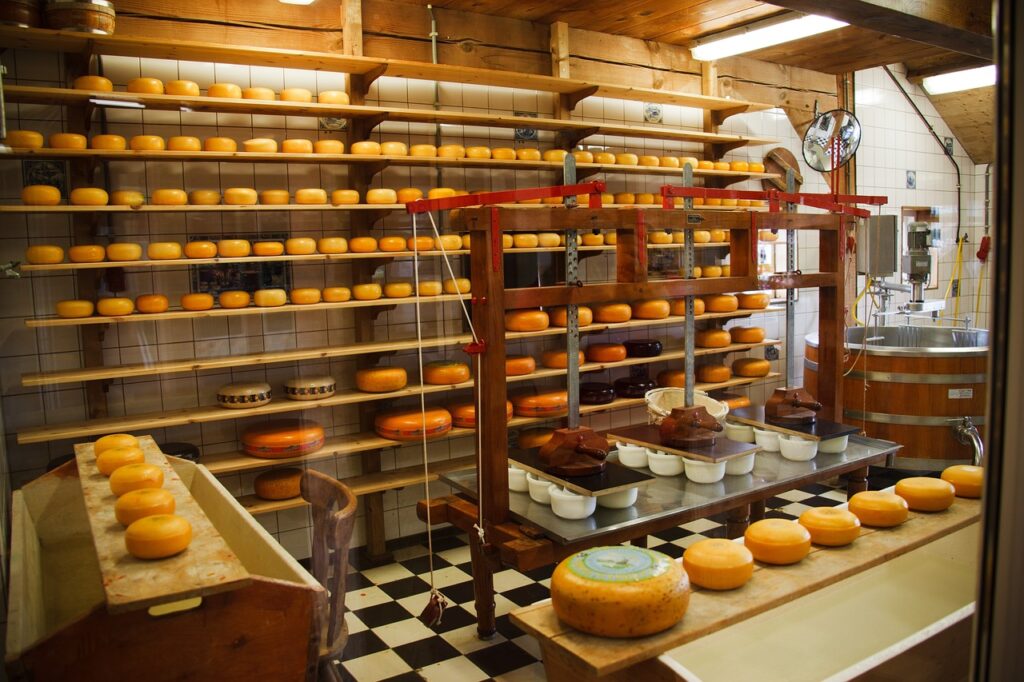Are you involved in the food processing industry and want to ensure that your products meet the highest standards of quality?
Quality control is crucial in the food processing industry to maintain the safety and integrity of your products.
By implementing stringent inspection procedures, utilizing advanced technology, and training your staff on proper quality control practices, you can guarantee that your products are of the highest quality.
Establishing documentation and record-keeping systems will also help you track and monitor the quality of your products throughout the entire production process.
Regular audits and quality control checks will provide you with valuable insights into potential issues and allow you to take corrective actions promptly.
In this article, we will explore these essential steps in detail, providing you with practical tips and strategies to ensure quality control in food processing.
Implementing Stringent Inspection Procedures
Implementing stringent inspection procedures is crucial in ensuring the highest quality standards are met throughout the food processing industry. By establishing a comprehensive inspection plan, you can identify and address any potential issues before they become major problems.
Begin by conducting regular inspections of all equipment, ensuring that everything is properly calibrated and functioning correctly. This will help prevent contamination and ensure that products meet the necessary safety and quality requirements.
Additionally, implement a system for product sampling and testing to verify that ingredients are of the highest quality. This includes regular analysis of raw materials, finished products, and packaging to guarantee consistent quality control.
By consistently implementing these inspection procedures, you can maintain the highest level of quality and safety in food processing.
Utilizing Advanced Technology for Quality Assurance
By adopting cutting-edge technology, you can effectively employ modern advancements to enhance and maintain the high standards of your food production. Utilizing advanced technology for quality assurance is crucial in ensuring the safety and consistency of your food processing.
One way to achieve this is by implementing automated systems that monitor and control critical processes, such as temperature and pressure. These systems can detect any deviations from the desired parameters and alert operators in real-time, allowing for immediate corrective action.
Additionally, advanced sensors and imaging technologies can be used to inspect and analyze the quality of raw materials and finished products. These technologies can detect contaminants, measure moisture levels, and even identify defects or inconsistencies.
By leveraging advanced technology, you can improve efficiency, reduce waste, and ultimately deliver safe and high-quality food products to your customers.
Training and Educating Staff on Quality Control Practices
Equip your staff with the necessary knowledge and skills to master quality assurance practices and guarantee the utmost safety and consistency in your food production. Training and educating your staff on quality control practices is essential for ensuring that all employees understand the importance of maintaining high standards throughout the food processing process.
Start by providing comprehensive training programs that cover topics such as proper handling and storage of ingredients, adherence to hygiene and sanitation protocols, and accurate documentation of procedures. Conduct regular workshops and seminars to keep your staff updated on the latest industry trends and regulations. Encourage your employees to ask questions and provide feedback to foster a culture of continuous improvement.
By investing in the training and education of your staff, you are laying the foundation for a successful quality control program that will lead to customer satisfaction and loyalty.
Establishing Documentation and Record-Keeping Systems
Establish a robust system for documenting and keeping records of every step in your production process, allowing you to track and trace the journey of your ingredients and ensure transparency and accountability in your operations.
This documentation and record-keeping system is crucial for maintaining quality control in food processing. Start by developing clear and standardized procedures for each stage of the production process.
Ensure that all employees are trained on how to accurately complete and maintain these records. Implement a digital system that allows for easy organization and retrieval of information.

Regularly review and update your documentation to reflect any changes or improvements in your processes. By establishing a comprehensive documentation and record-keeping system, you will have a solid foundation for ensuring quality control in your food processing operations.
Conducting Regular Audits and Quality Control Checks
Regularly conducting audits and quality control checks will help you maintain the high standards and consistency in your production process, giving you the confidence that every step is being closely monitored and evaluated.
Audits should be carried out on a regular basis to identify any potential issues or areas for improvement. This involves examining all aspects of your food processing operations, including equipment, facilities, and personnel. By conducting thorough inspections and evaluations, you can ensure that all processes and procedures are being followed correctly and that any deviations or non-compliance are detected and addressed promptly.
Quality control checks should also be performed regularly to verify the quality and safety of your products. This can involve testing samples for microbial contamination, checking ingredient specifications, and conducting sensory evaluations to ensure the taste, texture, and appearance meet your predetermined standards.
By consistently conducting audits and quality control checks, you can proactively identify and address any potential issues, ensuring that your food processing operations consistently meet the highest quality standards.
Conclusion
In conclusion, ensuring quality control in food processing is essential for the success and reputation of your business. By implementing stringent inspection procedures and utilizing advanced technology, training and educating staff, establishing documentation systems, and conducting regular audits, you can maintain the highest standards of quality and safety in your food products.
Remember to always prioritize the satisfaction and trust of your customers by consistently delivering top-notch products. With dedication and attention to detail, you can confidently provide consumers with the quality they deserve.




